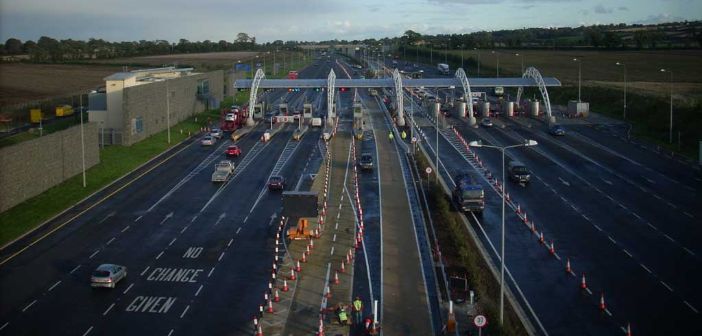Transport Infrastructure Ireland (TII), the official body responsible for Ireland’s national road network, has selected global technology and consulting company Indra to supply, implement and maintain the toll interoperability management platform for the country’s 11 motorways and operate it for 50 months until 2026.
The interoperability management services to be provided by Indra under the new contract will facilitate electronic toll collection interoperability on all of the toll roads in Ireland by providing the toll service providers with the means to exchange data on payment/collection transactions.
With a business-to-business solution, it offers a seamless transactional service, so that the day-to-day user will benefit without any interruption in services being provided. This will enable domestic and European users who have an account with a toll service provider to use all of the toll roads in the state, regardless of the provider.
Indra will implement an advanced clearing house system in the cloud, based on a micro-services architecture. It will receive data from both the toll road operators and the toll service providers, the entities that issue the transponder devices that are installed in the vehicles to manage the customers’ accounts. The clearing house will verify, consolidate and distribute the above data (amount, time, date and place) to all of them again to ensure correct payment of the tolls.
This will be done in accordance with a defined data exchange standard and an interoperable system aligned with the 2019 European directive that promotes the cross-border exchange of information in the EU in this area.
In this respect, Indra’s interoperability management platform will comply with the requirements of the European electronic toll service (EETS) and the equivalent standards for electronic fee collection, making it open, flexible, modular and scalable.
It will thus be ready to incorporate new features and other types of transactions if required, such as congestion charges based on the amount of traffic and vehicle pollution and those stemming from advanced mobility policies, such as Mobility-as-a-Service.
Indra will also operate the platform. It will provide the management, R&D, business processes, systems and communications infrastructures required to provide the interoperability service 24 hours a day, 365 days a year.
The company has implemented its toll technology in countries such as the USA, Canada, Mexico, Chile, Colombia, Australia, the Philippines, Israel, Portugal, Spain and Ireland itself, where its back-office technology has been installed on six highways, including the one linking Dublin to the border with Northern Ireland, an important strategic route.
In Mexico, it has developed one of the largest electronic toll projects tendered so far in the world. It has implemented its electronic toll technology for the entire public highway network in Mexico, with almost 500 roads that total approximately 4,000km, a figure accounting for around 45% of the country’s highways.
Indra’s toll solution incorporates artificial intelligence and deep-learning capabilities for integration with connected vehicles and the company’s automatic vehicle occupant detection system. As a result of these advances, Indra is currently implementing an advanced toll system on the I-66 highway in the USA, enabling it to operate it with a dynamic pricing system.
Specialising in free-flow toll systems and multi-concession toll systems, Indra is now advancing toward the model of dynamic tolls (managed lanes) to facilitate new and more sustainable mobility policies.
You can learn more about the key trends and challenges affecting senior decision-makers who have responsibility for tolling, intelligent transportation systems and road pricing at the 19th annual Road User Charging Conference in Brussels, Belgium on 04-05 May 2022. Visit www.roaduserchargingconference.co.uk for more information.





